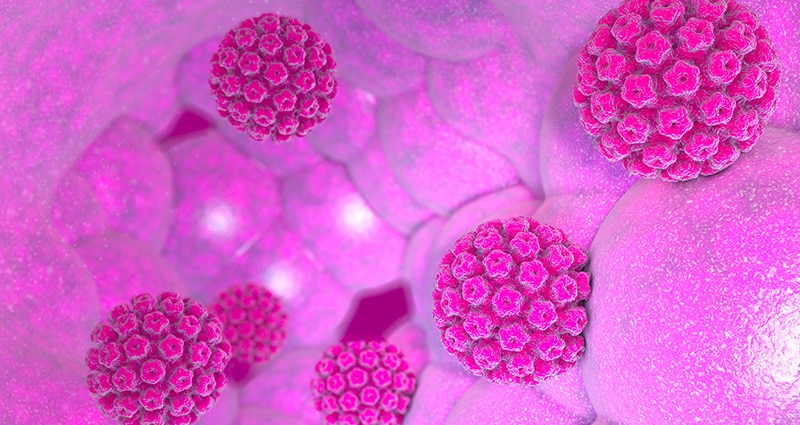Learn what’s fact and what’s fiction to better understand how the HPV vaccine helps you stay healthy.
HPV Vaccine Myths and Facts
All women are at risk for cervical cancer. Since the Pap test became a regular feature of women’s healthcare, cervical cancer rates have dropped drastically. However, the numbers can go lower. With the HPV vaccine, cervical cancer prevention is possible.
Despite this great advance, there is misinformation out there about the HPV vaccine. Here are some of the myths about HPV and the vaccine and the truth behind them.
Myth: Cancer Isn’t Caused by a Virus
Some cancers are caused by smoking. Other cancers are caused by obesity or a poor diet. Yet others have no known cause. Though there are other causes of cervical cancer, HPV is at the root of most cases. A sexually transmitted virus, the human papillomavirus (HPV) results in nearly 36,000 of 45,300 cervical cancers annually. Vaccination can greatly reduce your risk.
Myth: Pap Tests Are Enough
For decades, annual Pap tests were the gold standard for diagnosing cervical cancer. While still helpful in catching cervical cancer, vaccination is better. Few cancers have an available vaccine, but cervical cancer is one of them. You may still want to undergo Pap tests after receiving the HPV vaccine, but your cervical cancer risk drops.
Myth: HPV Vaccination Is Dangerous
There are rumors that HPV vaccines can result in infertility or an autoimmune disease. Like most rumors, they’re not true. Despite numerous tests with millions of participants, researchers have uncovered no such link. That said, the vaccine can cause side effects. These include the following:
- Experiencing a headache, fever, muscle or joint pain, or redness, pain or redness at the site of the injection
- Fainting
- Feeling nauseous, dizzy or tired
The HPV Vaccine Doesn’t Last
Every winter, the world gears up for flu vaccines. Some think the HPV vaccine needs repeat doses to be effective. Research says otherwise. After following HPV vaccine recipients for a dozen years, researchers saw no evidence that the vaccine’s protection weakened over time.
Myth: HPV Vaccines Are Given Too Early
Some insist the HPV vaccine is given too early or that children shouldn’t receive it. Current recommendations allow children to receive the vaccine starting at age 9. Why? It’s proven to protect youngsters and help them avoid cancer treatment in the future. In the event cervical cancer still occurs, our health system offers the latest and greatest care.




